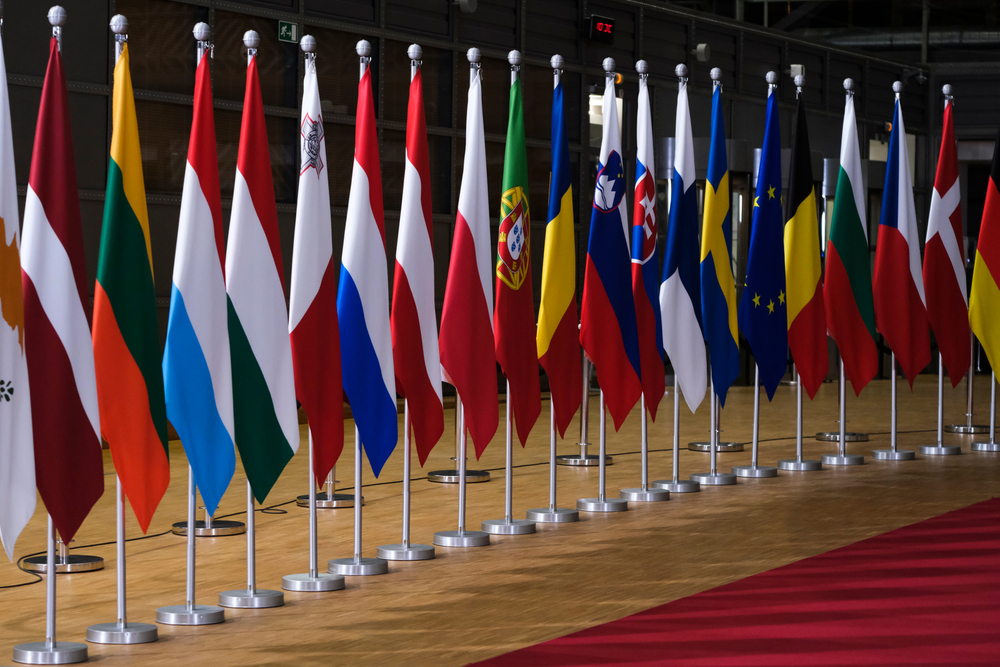As Ukraine marks the third anniversary of its war with Russia, Western leaders gathered in Kyiv to show solidarity and pledge further military support. The event comes amid growing concerns about the shifting stance of the U.S. under President Donald Trump, whose administration has signaled a different approach to the conflict.
A Crucial Year for Ukraine’s Future
With the war entering its fourth year, uncertainty looms over Ukraine’s future. Trump, who recently returned to office, has pushed for a peace deal, raising concerns in Kyiv and across Europe. His recent comments, which included calling Ukrainian President Volodymyr Zelenskyy a “dictator,” have alarmed Ukraine’s allies.
European Commission President Ursula von der Leyen emphasized the global stakes of the war, warning, “The autocrats around the world are watching very carefully whether there’s any impunity if you violate international borders or invade your neighbor, or if there is true deterrence.”
Europe Responds to Washington’s Shift
The U.S. administration’s softened stance on Russia has triggered concerns in Europe. European Council President Antonio Costa announced an emergency summit on March 6 to address the situation, stating, “We are living a defining moment for Ukraine and European security.”
EU leaders are also taking action. On Monday, foreign ministers approved new sanctions against Russia, including targeting its “shadow fleet” of ships used to bypass oil and gas restrictions. Asset freezes and travel bans were imposed on 83 Russian officials and entities.
Meanwhile, European nations are ramping up military support. Spanish Prime Minister Pedro Sánchez announced a €1 billion ($1.04 billion) military aid package for Ukraine, while British Prime Minister Keir Starmer reinforced the need for Ukrainian voices in peace talks, stating, “Russia does not hold all the cards in this war.”
Putin Gains Ground as Ukraine Faces Shortages
On the battlefield, Russia continues to make gains as Ukraine struggles with shortages of troops and weapons. The situation worsened after Sunday’s record drone attack, where Russia launched 267 drones against Ukraine.
Conservative German leader Friedrich Merz, who just won Sunday’s elections, underscored the need for continued support: “More than ever, we must put Ukraine in a position of strength.”
Diplomatic Efforts and U.S.-Russia Relations
As military tensions escalate, diplomatic efforts are also intensifying. U.N. Secretary-General António Guterres called the third anniversary “a grim milestone,” highlighting “more than 12,600 civilians killed, with many more injured. Entire communities reduced to rubble.”
Meanwhile, Washington and Moscow appear to be moving closer. Russia’s foreign ministry confirmed that preparations for a Trump-Putin meeting are underway, and discussions on reestablishing diplomatic ties have begun.
EU foreign policy chief Kaja Kallas pushed back against Trump’s comments about Zelenskyy, asserting, “Russia hasn’t had elections in 25 years.” She also insisted that any peace deal must include Ukraine and Europe, stating, “You can discuss whatever you want with Putin. But if it comes to Europe or Ukraine, then Ukraine and Europe also have to agree to this deal.”
The Road Ahead for Ukraine
As Ukraine enters a pivotal phase of the war, the international response will shape its future. While Western leaders reaffirm their support, shifting U.S. policies introduce uncertainty. For now, Ukraine’s allies remain steadfast in their commitment to bolstering its defenses and ensuring that its interests are protected in any future peace negotiations.


